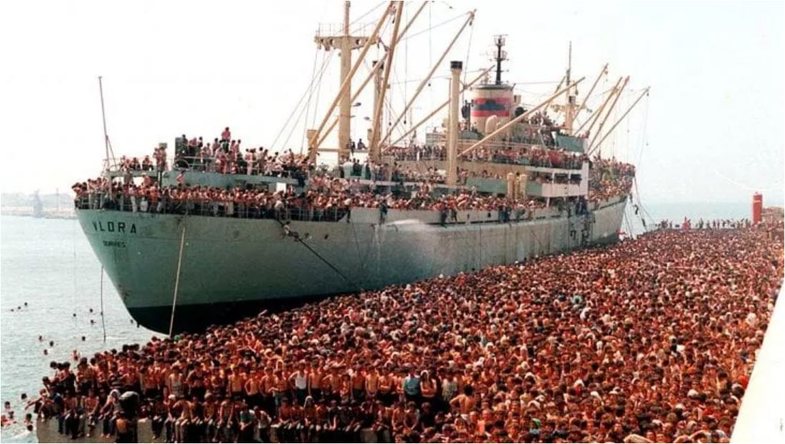
Thirty years ago, 20 thousand Albanians landed in Bari with the ship Vlora, an event that is remembered and has traveled around the world through a photograph which conveyed in the best possible way the drama of that period.
The author of the famous photograph at the time was a 16-year-old boy, Lorenzo Turi, who worked at the photo agency of his father, Luca. In an interview with La Repubblica, he tells why the ship Vlora cannot be forgotten.
"Because it is a unique, unrepeatable thing. It had never happened and probably will not happen to anyone to face a ship that had turned into a kind of human obstacle. For hours, men, women and children of all ages left the Vlora ship, polluted, tired, hungry and in need of everything. ”
Turi says the photo was taken at 2:30 p.m., hours after the ship was anchored. He recalled that there were many people on the boat, as if no one had come down.
"I remember that the anchoring operations were very difficult, the engines of Vlora were no longer working and the tugboats were struggling to pull it. "We definitely started taking pictures and filming by the sea."
He mentions another thrilling moment of that day.
"[...] Then there are two other images that are memorable to me. The first is the battle that started between about twenty Albanians when someone threw a piece of bread: everyone rushed to try to catch him because they were very hungry. "
View this post on Instagram
What about the second image? The tour mentions Enrico Nicola Dalfino, professor and mayor of Bari.
"He moved to a corner and put his hands on his face. In my opinion, it was not an emotional cry, but it was the call of someone who was at the center of a drama and wondering what to do to help those people. For me, this is a double memory: of Vlora and of the mayor. ”
The following days were even heavier.
"We stood on the street day and night, dividing between the stadium and the port. Many forget that many people were trapped, staying in the strong sun and at a very high humidity level, nor had shelter to shelter. There was a bad smell in the air, there were those who were sick, those who were trying to escape, those who were hungry or thirsty. Occasionally, police threw water into the air to cool it down, but the hygienic conditions were really awful. At the stadium, however, from one moment to the next, a police raid was expected. "Then, after the arrival of the police chief, Vincenzo Parisi, the first repatriations began," he recalled.





